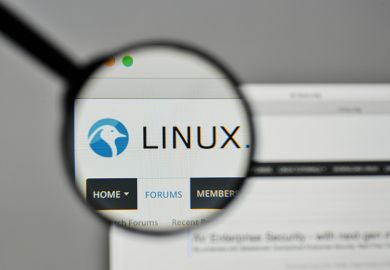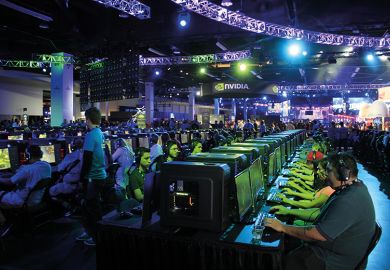In many ways, there has never been a better time to lead a college of computer science. At Northeastern University’s Khoury College of Computer Sciences, where I have been dean since 2022, our student body has tripled in the past decade and enrolments are still soaring, while the gender gap is shrinking. We see great enthusiasm for careers in this dynamic, challenging field.
But computer science is at a crossroads. A cursory review of daily news headlines reveals ongoing angst about the role of AI in fair decision-making, automation and job loss. And many of the best practices in our field, such as sharing open-source software and creating large-scale platforms for sharing information and news, have also enabled unintended, unfortunate outcomes.
For example, dubious actors have been enabled to piece together code and algorithms for face recognition. Coupled with the ability to scrape large amounts of data from social media platforms, these actors have sold extensive face-recognition systems to law enforcement agencies. While these systems can help identify and rescue abducted children, we now have databases filled with social media images of non-consenting children’s faces.
Such unforeseen outcomes raise questions that cut to the heart of our mission as computer science educators. Is an abundance of computer science graduates good for higher education and, more importantly, the world? Are our students pursuing high-income jobs regardless of the impact of their work? How do we adjust our curriculum to incorporate the effects of computer science in society? How do we encourage our graduates to build ethical and trustworthy computing systems?
I believe the field of computer science needs a fundamental course correction. We can no longer be singularly tied to our mathematical and engineering foundations, focused only on what can be built. We must also ask what should be built, and who needs to be part of that design and implementation process. These questions demand that computer science education and research broaden their community, not diminish it.
At Northeastern, the vast majority of our students study core programmes in computer science, data science and cybersecurity in tandem with diverse fields such as business, biology, philosophy and law, through our combined majors. And over a third of our faculty have joint appointments with other departments, including philosophy, journalism, law, psychology, health sciences, and mechanical and electrical engineering.
An interdisciplinary education will help to ensure that our graduates get beyond the “move fast and break things” concept that has often driven the tech industry over the past two decades and step up to the challenge of designing AI systems that rise above our human biases, creating life-enhancing advancements that benefit as many people as possible.
We also need to consider who is entering computer science programmes in the first place. While we have taken strides be more diverse, we are still seeing a deficit in “under-represented populations”, including women, people of colour and those who face cultural barriers to high school computer science opportunities. At Northeastern, we created a bridge master’s computer science programme, called Align, for students with no formal tech background looking to pivot to a high-tech career. Some of these students come straight from undergraduate programmes, where many students are shut out of computer science programmes because of overwhelming demand. Others look to complement their current careers in healthcare, finance and law. More than half of the students who take advantage of this “second chance” opportunity are women.
Many programmes across the US are also grappling with how to integrate ethics. At Northeastern, our approach recognises that stand-alone courses do not help students to understand technical trade-offs and methods for developing ethically informed systems, so we strive to integrate ethics across the curriculum, starting at matriculation with our “Oath for Computing”.
Modelled on the Hippocratic oath, this statement – which all of our students recite and adopt – recognises that with computing knowledge comes a great responsibility to serve society. We weave the tenets of this oath into our curriculum and position it as a North Star for all students.
As we enter the new era of transformative advancements in AI, we cannot afford to ignore this great responsibility. The stakes are simply too high.
Beth Mynatt is dean of Northeastern University’s Khoury College of Computer Sciences.
POSTSCRIPT:
Print headline: Program a course correction
Register to continue
Why register?
- Registration is free and only takes a moment
- Once registered, you can read 3 articles a month
- Sign up for our newsletter
Subscribe
Or subscribe for unlimited access to:
- Unlimited access to news, views, insights & reviews
- Digital editions
- Digital access to THE’s university and college rankings analysis
Already registered or a current subscriber?








